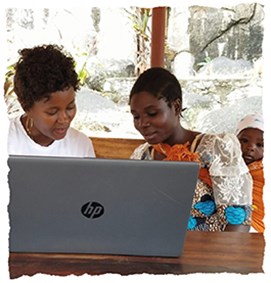East Africa teams leading the way in pioneering methods
- Date: 11 February 2021
- In: Tanzania
Our teams in East Africa have become some of the first in the continent to use a pioneering video technology to help strengthen families, and now they have the certification to prove it. 13 members of our teams based in Tanzania have now been awarded official accreditation in VIG (Video Interactive Guidance) a groundbreaking method that uses video to help parents and families improve communication and relationships. It works by letting parents see film footage of themselves with their children so they can then analyse how they behave and develop ways to change and improve these interactions.
Railway Children’s Training and Practice Development Officer, Mary Mushi, said: “Most street connected families and children have experienced maltreatment and neglect, so most of the time their interaction and communication with their own children is abusive too as this is the only way the parents have learned to interact with their children. This then creates a cycle of intergenerational violence and results in negative life outcomes.”
Using the VIG methods, the teams in Tanzania have been showing parents the film footage, and then talking it through with them and helping them be more attentive, encouraging and positive. Then they put these strategies in to practice, on camera again, and watch the film back to see the difference the new approach makes.

Mary said: “When parents and caregivers are empowered by what they see, it gives them an opportunity to look into areas they find challenging and come up with a goal of what they want to see change in their children, in themselves as parents, in their daily lives and in their communication.”
So far three of our projects have used VIG with 78 parents and caregivers, including parents whose children have been returned to them after being found on the streets and young mothers from our youth association groups for older street children. The feedback so far has been encouraging, with one mother saying: “I have learned as a parent I should not be angry at my child, because she is still young, instead I should understand her given her developmental stage.”
Another added: “Nowadays every evening we sit as family and talk about what happened during the day”, while another parent said: “I use friendly words with my child now, and don’t shout at her like before. I am calmer, and I understand my children more.”